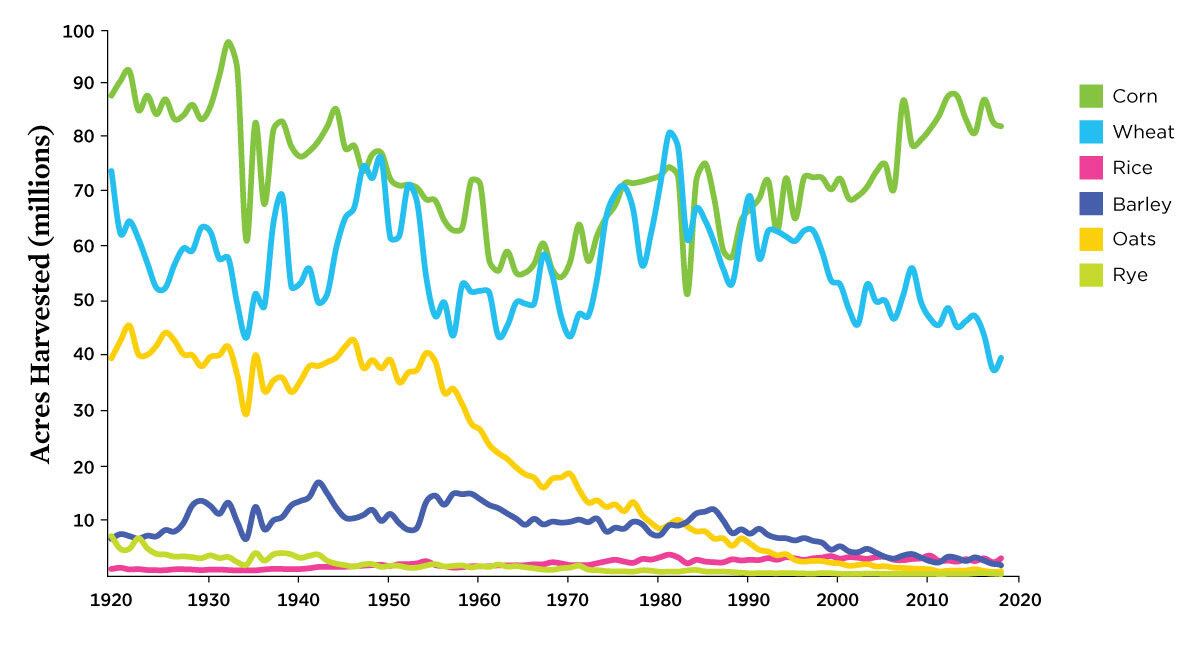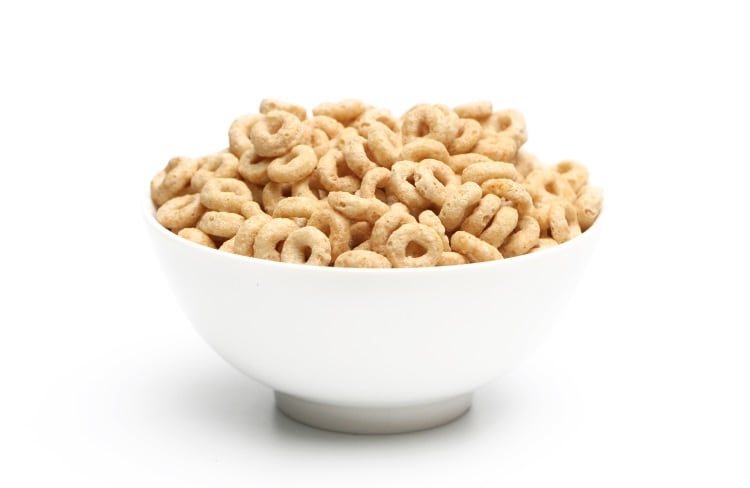According to the report – the Champions of Breakfast (2019): How cereal makers can help save our soil, support farmers and take a bite out of climate change – General Mills, Kellogg Company, Post Holdings and PepsiCo’s Quaker Foods control 86% of the $8.5bn US breakfast cereal market. Millions of Americans start the day with a bowl of grain-based cereal made by one of these household names.
That is a lot of grain – and it gives these producers a lot of leverage to help farmers change agricultural system for the better.
Many of these companies have committed to making a difference. For example, General Mills has pledged to shift one million farm acres to regenerative agriculture practices by 2030. PepsiCo and Kellogg, too, have upped their sustainable-grains initiatives.
However, under the current system, grain farming is a significant driver of water pollution, soil erosion, biodiversity loss and heat-trapping emissions.
The scientists believe that, by instigating a few modest shifts in their grain purchasing practices, these companies could help expand opportunities for sustainable grain farming, setting wheels in motion for larger-scale market shifts.
“The dominant way of growing grains in the US causes significant water pollution and contributes to the climate crisis,” said Marcia DeLonge, senior scientist of the UCS’ Food and Environment Program.
“If cereal makers, which are major buyers of grains, insisted on purchasing these ingredients from farms that employed regenerative practices, we’d likely see more farmers adopting those practices.”
Often at the expense of soil, water and air quality
In recent decades, US federal policies have incentivized farmers to grow only a handful of crops, including grains, in ways that maximize yields.
In 2017, corn covered more than 89 million acres (an area about the size of New Mexico), and wheat covered 46 million acres (an area about the size of Washington).
In contrast, oats – once commonly grown by US farmers and helped to diversify production – have all but disappeared. What finds their way onto breakfast tables is often imported from elsewhere.
The same can be said for barley and rye.

The result is an overly simplistic agricultural system that covers tens of millions of acres. Farmers typically plant corn and wheat in continuous monoculture, but this leaves fields bare and susceptible to erosion and degradation between growing seasons, vulnerable to pests and weeds, which, in turn, requires large quantities of fertilizers and toxic pesticides.
Soil is less able to absorb and hold water and nutrients, and the whole lot flows downstream and contaminates drinking water and damages the environment.
For example, the UCS reports the farming of corn has resulted in much of the nitrate in Iowa’s drinking water, the toxic algae in Lake Eerie and the co-called coastal ‘dead zones’ – especially the one in the Gulf of Mexico that is forecast to be the size of Massachusetts. Corn is also a major source of air pollution.
By following soil-health building practices, farmers could revert these problems, and ultimately, benefit from the knock-on economic benefits.
Cover crops, more diverse crop rotations and prairie strips are just a few soil-covering practices that make soils “spongier,” or more able to absorb and hold carbon, water and nutrients.
An Iowa State University study found that rotating oats and other crops with corn and soybeans can dramatically reduce soil erosion and pollutant runoff while maintaining farmer profits.
Wheat farmers in Montana have also found that crop rotations that include lentils – which require little moisture – helps with soil health and increase farm resilience in that arid region.
How the Big 4 could help
According to the UCS, it is clear the big cereal companies could be doing more.
For example, it states that, if Kellogg’s used more sustainable sourcing standards to purchase the amount of corn used annually in Frosted Flakes – 2017’s top-selling corn cereal – this could shift 10,000 to 30,000 acres to a more sustainable cropping system.
The amount of oats used annually in General Mills’ Honey Nut Cheerios – 2017’s top-selling oat cereal – could shift 60,000 to 180,000 acres to a more sustainable cropping system.
The benefits would include clean-up cost savings of up to $1m from the reduction in soil erosion; the equivalent of taking 840 cars off the road in reduced heat-trapping emissions from nitrogen fertilizer; and potential cost savings of nearly $12m in preventing freshwater pollution from the reduction in fertilizer runoff.
The authors noted that the numbers quoted involve shifting grain sourcing for a few individual brands, not for the companies’ entire product lines.
If such changes were implemented on a larger scale, the environmental, economic, and climate benefits could be enormous.
They recommend that cereal makers and other major grain purchasers establish or expand their commitments to promote healthy-soil farming practices
They are calling on Big Food to advocate for state and federal legislation to incentivize and enable more farmers to profitably adopt these regenerative practices.
And finally, they maintain that consumers, too, can play a major role in encouraging companies to shift their purchasing practices.
Studies:
Air-quality-related health damages of maize
Authors: Jason Hill, Andrew Goodkind, et al
Nature Sustainability, volume 2, pages 397–403 (2019)
Cropping system diversity effects on nutrient discharge, soil erosion and agronomic performance
Authors: ND Hunt, JD Hill JD and M Liebman
Environ Sci Technol. 2019 Feb 5;53(3):1344-1352




